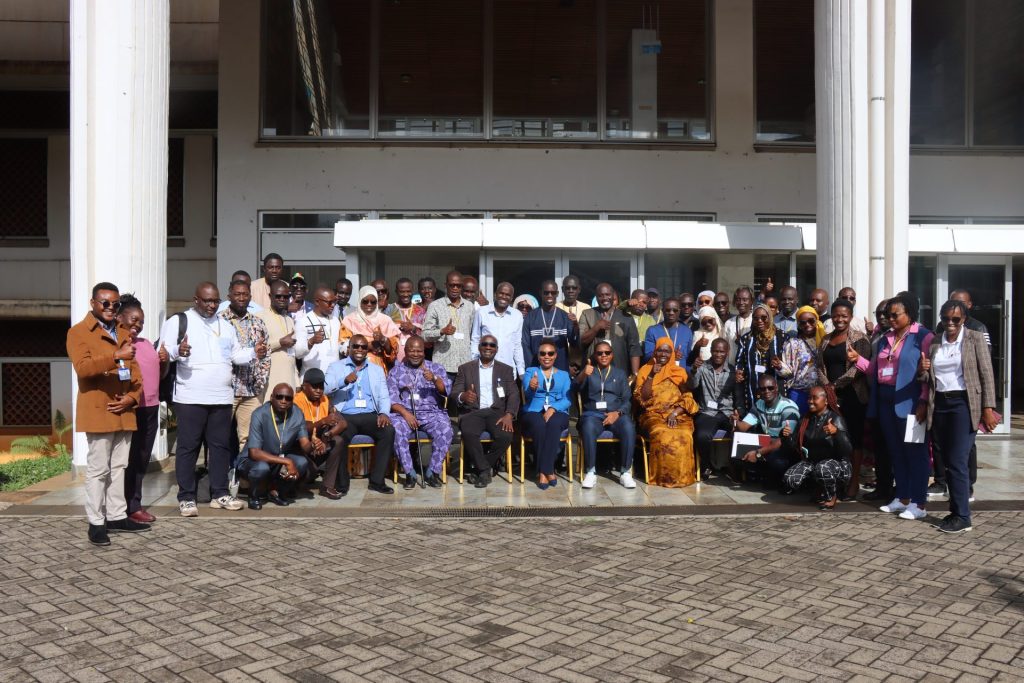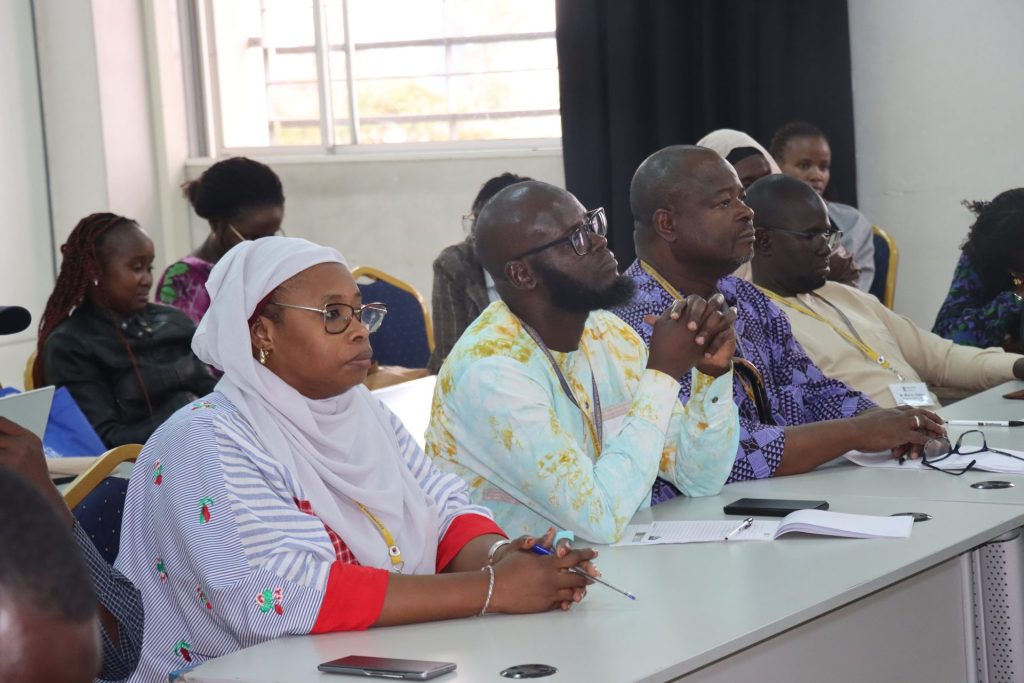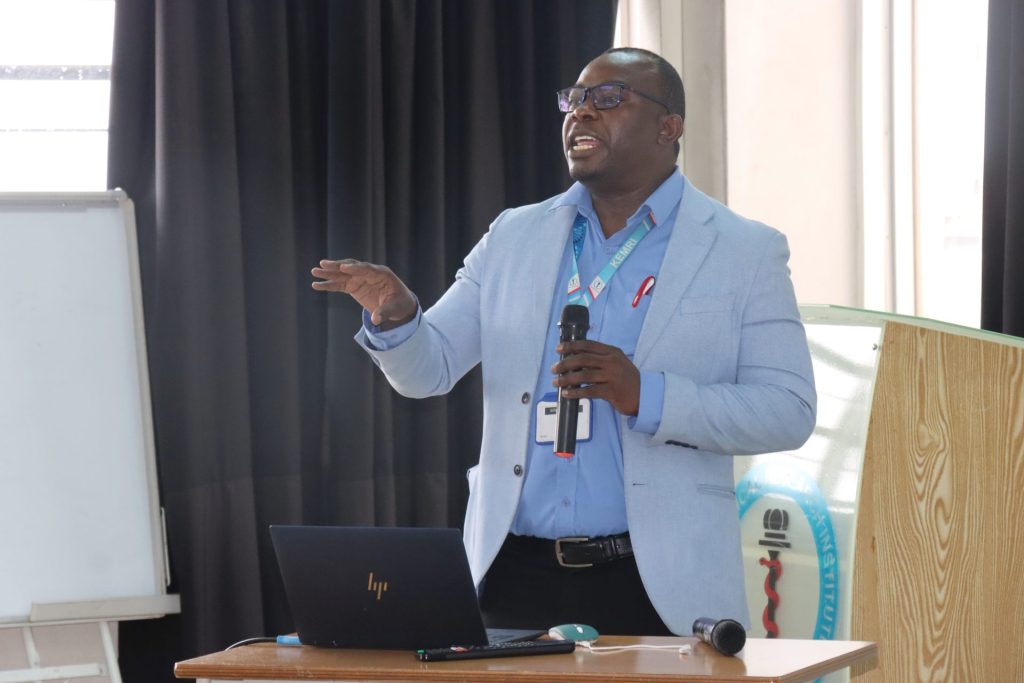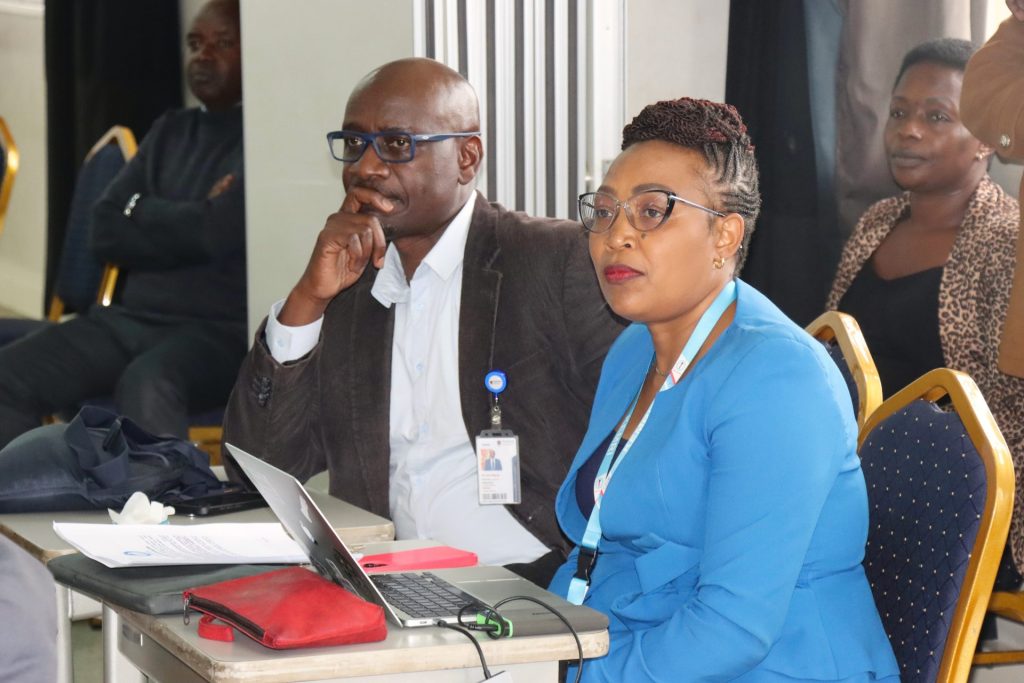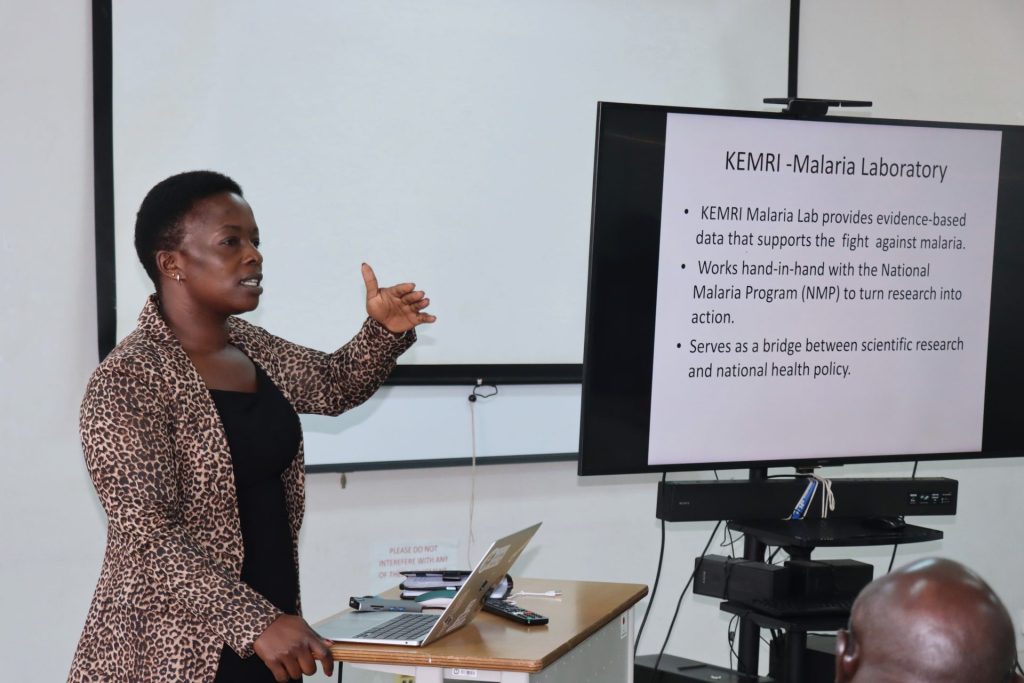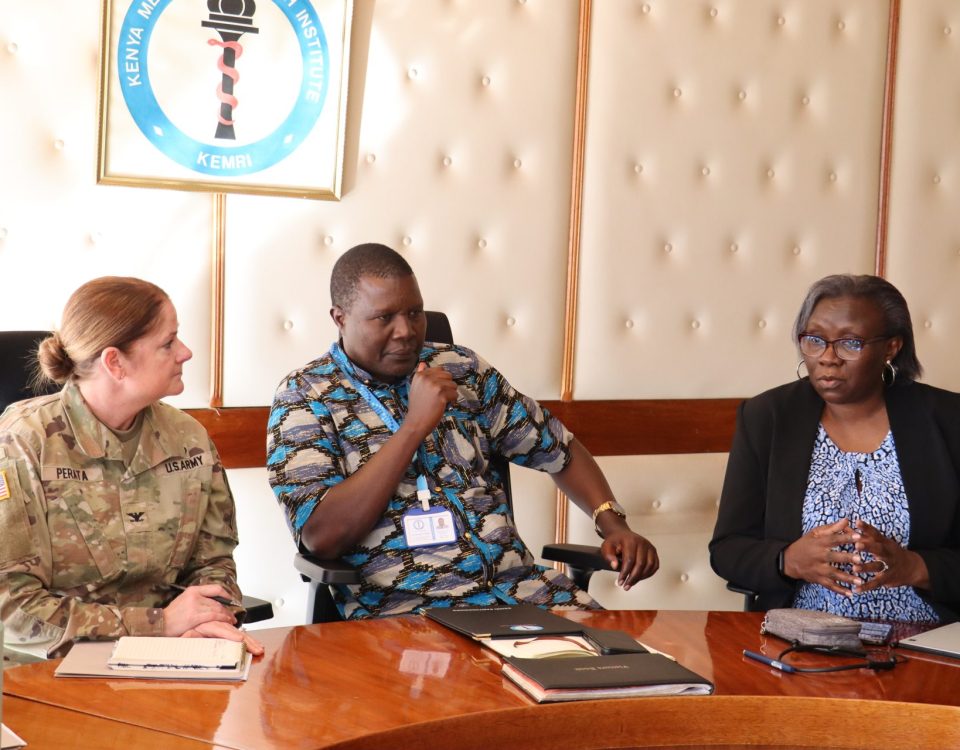
KEMRI Maintains a Streak of Excellence in Annual Performance Evaluation
November 5, 2025
KEMRI Hosts TDR’s Symposium to Advance Research Mentorship and One Health
November 5, 2025Senegalese Delegation Hails KEMRI’s Malaria and NTDs Research
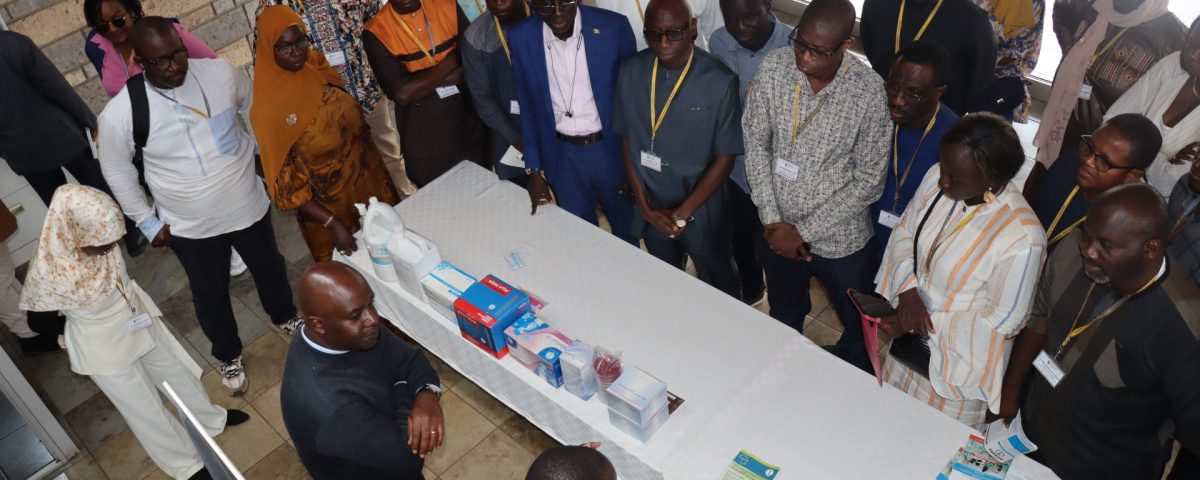
By Gideon Kirui
KEMRI’s leading role in the fight against Malaria and Neglected Tropical Diseases (NTDs) came into sharp focus on 29th October 2025 during a visit by a 42-member Senegalese delegation under Strathmore University’s ELEMMINATE Project.
The 42-member delegation, comprising 38 malaria researchers and four NTD specialists, was accompanied by staff from Strathmore University led by the Project’s Principal Investigator, Dr. Ben Ngoye. The team toured KEMRI’s Malaria Division housed within the Centre for Biotechnology Research and Development (CBRD) to gain insights into Kenya’s and KEMRI’s scientific progress in malaria control, research, and innovation, while exploring avenues for cross-learning and collaboration in disease management across Africa.
The visitors were warmly received by KEMRI officials led by the Acting Deputy Director Biotechnology Programme and Entomology Division Head, Dr. Damaris Matoke. In her remarks, Dr. Matoke underscored KEMRI’s broad research portfolio and its central role in supporting the Ministry of Health’s efforts to tackle malaria and NTDs. She emphasized the critical role of data-driven research and epidemiological surveillance in shaping effective disease control strategies and guiding national and regional policy decisions.
Through a series of presentations, KEMRI scientists showcased the Institute’s community-focused approach to health research, highlighting how participatory health education and capacity-building initiatives have empowered local communities to sustain gains in malaria and NTD control.
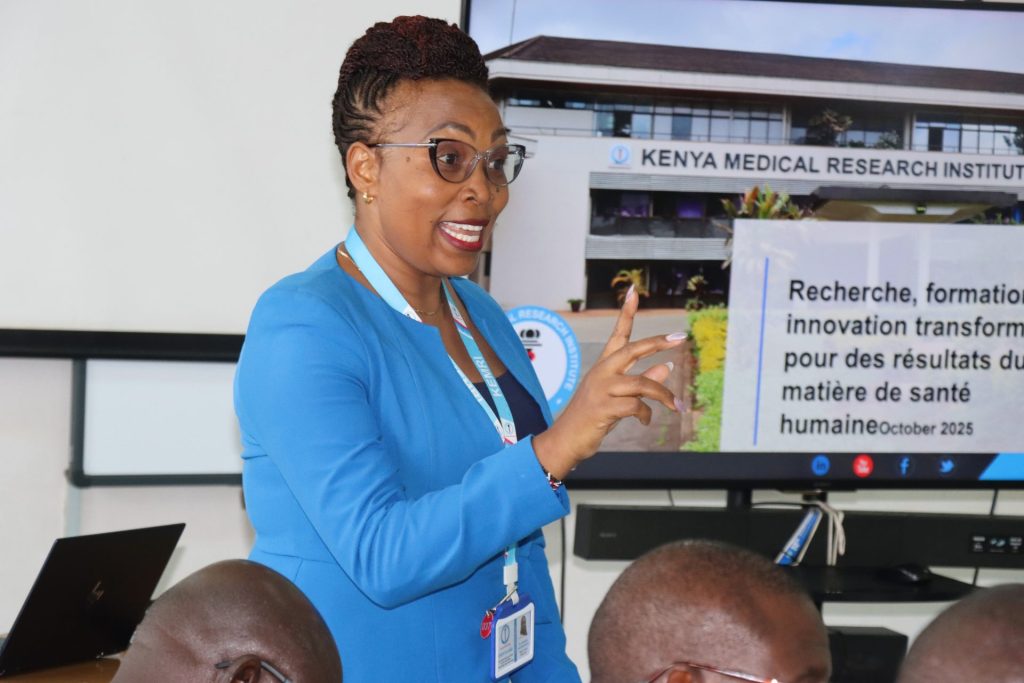
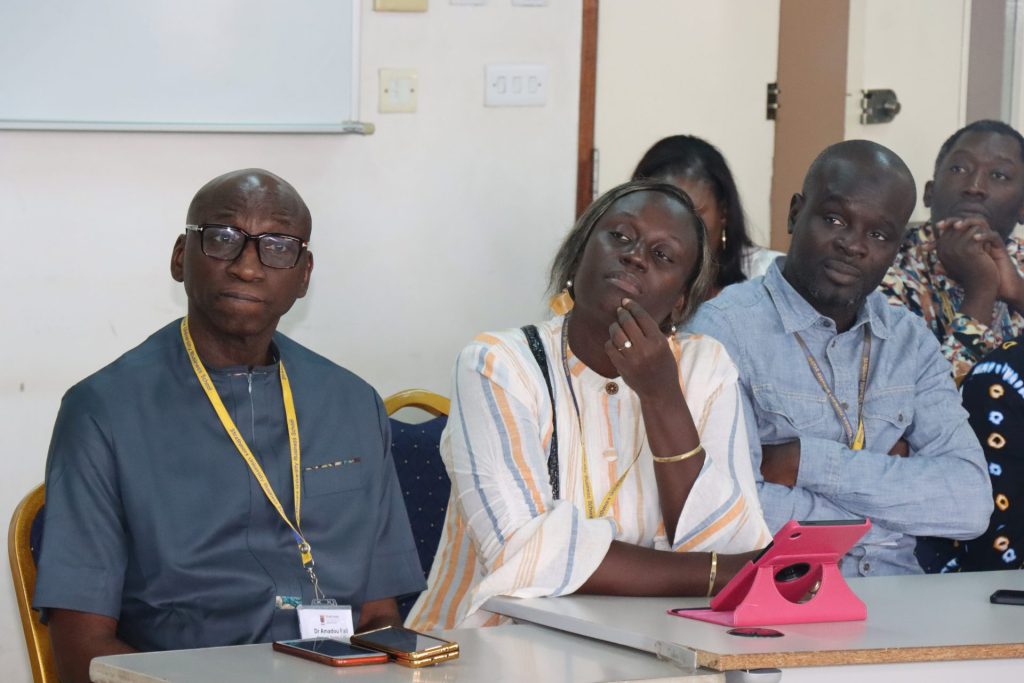
The delegation was also briefed on KEMRI’s pioneering innovations in malaria diagnostics and treatment, including the development of Plasmocheck, a locally designed diagnostic product that has enhanced malaria detection and strengthened Kenya’s biomedical self-reliance. CBRD’s Ms. Maureen Otinga traced the evolution of malaria treatment from early reliance on chloroquine to the widespread adoption of artemisinin-based combination therapies (ACTs), reflecting adaptive research guided by emerging scientific evidence. In addition, the role of KEMRI’s entomology laboratories in molecular surveillance, vector identification, and insecticide resistance monitoring was highlighted as a cornerstone of the national vector control programme. KEMRI’s technical contributions to the Kenya Malaria Strategy and the formulation of national guidelines for the management of Anopheles stephensi further demonstrated the Institute’s leadership in policy support and research translation.
Beyond malaria, Dr. Matoke outlined KEMRI’s extensive involvement in combating NTDs, including an ongoing Dr. Damaris Matoke-Muhia Leishmaniasis project spanning Kenya, Sudan, and Ethiopia, funded by the U.S. National Institutes of Health (NIH). The initiative focuses on monitoring sandfly populations, assessing their diversity and densities, and screening patients for Leishmania parasites, vital interventions aimed at reducing disease burden in endemic regions.
The visit culminated in a tour of the Innovation, Technology and Transfer Division (ITTD), where the delegation learned about KEMRI’s broader innovation ecosystem. The visitors expressed their appreciation for enriching knowledge exchange and commended the Institute’s dedication to scientific excellence, innovation, and its enduring public health impact across Africa.
In addition to the insightful session by the CBRD team, the visitors were treated to a captivating presentation in French by the Principal Corporate Communications Officer, Dr. Sammy Baya, whose eloquent command of the language left the participants both impressed and appreciative. The engagement underscored KEMRI’s integral role as a regional leader in science-driven health solutions and reaffirmed the Institute’s unwavering commitment to fostering partnerships that strengthen Africa’s capacity to fight malaria and neglected tropical diseases.
